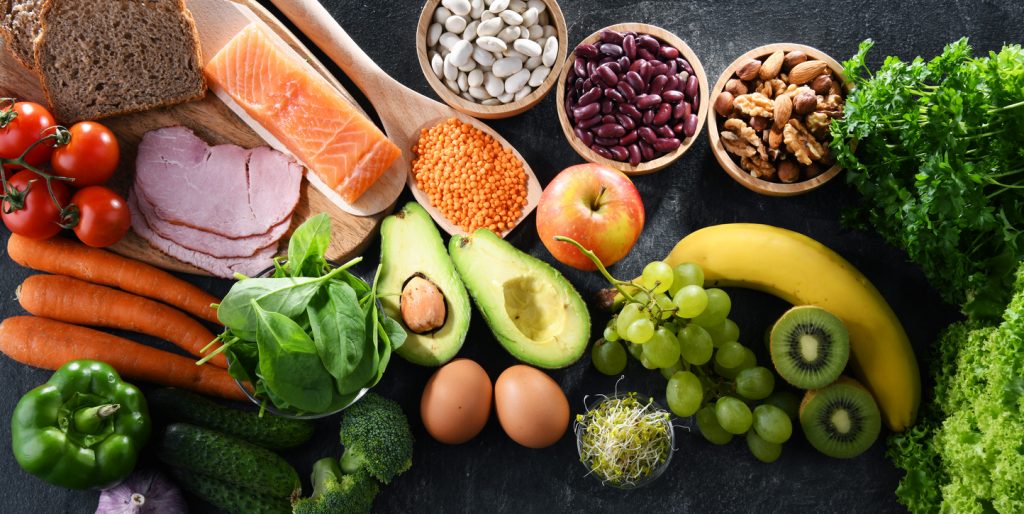
Maintaining a healthy diet is essential for overall well-being, but did you know it plays a critical role in your dental health as well? The connection between what you eat and the health of your teeth and gums is profound. A balanced diet not only supports strong teeth and healthy gums but also contributes to your overall wellness. Today, we will explore foods that promote better dental health and general well-being, helping you make informed choices for a healthier mouth.
Understanding the Connection Between Diet and Dental Health
What you eat significantly impacts your teeth and gums. The nutrients in your food help to build and maintain strong teeth and healthy gums. Conversely, a poor diet can lead to dental issues such as gum disease and cavities.
When you consume sugary or starchy foods, the bacteria in your mouth break down the sugar and starch into acids. These acids can erode tooth enamel, leading to cavities. Additionally, a diet lacking essential nutrients can compromise your immune system, making it harder for your body to fight off infections, including gum disease.
Essential Nutrients for Dental Health
To maintain optimal dental health, it is crucial to include certain nutrients in your diet:
- Calcium and Vitamin D: These nutrients are vital for strong teeth and bones. Calcium helps harden your enamel, the outer shell of your teeth, while Vitamin D enhances calcium absorption and bone mineralization. You can find these nutrients in dairy products like milk, cheese, and yogurt, as well as leafy greens and fortified cereals.
- Vitamin C: Essential for gum health, Vitamin C helps prevent gum disease by promoting collagen production, which is crucial for maintaining the integrity of your gums. Foods high in Vitamin C include citrus fruits, strawberries, and bell peppers.
- Phosphorus: This mineral supports tooth enamel and is found in abundance in fish, eggs, nuts, and beans. Phosphorus works with calcium to maintain strong teeth and bones.
- Antioxidants: These compounds help reduce inflammation and prevent gum disease. Antioxidant-rich foods include berries, nuts, and green tea. By neutralizing harmful free radicals, antioxidants protect your gums and overall oral health.
Foods to Include in Your Diet for Optimal Dental Health
Incorporating certain foods into your diet can significantly benefit your dental health:
- Crunchy Fruits and Vegetables: Foods like apples, carrots, and celery act as natural toothbrushes (not to substitute for actually brushing your teeth). Their fibrous texture helps scrub away plaque and food particles from your teeth while stimulating saliva production, which neutralizes acids in the mouth and washes away food particles.
- Dairy Products: Milk, cheese, and yogurt are rich in calcium, which is essential for strong teeth and bones. Additionally, cheese helps maintain a balanced pH level in the mouth, reducing the risk of tooth decay.
- Leafy Greens: Spinach, kale, and other greens are packed with vitamins and minerals that promote oral health. They are high in calcium and contain folic acid, which can benefit gum health, especially in pregnant women.
- Nuts and Seeds: Almonds, sesame seeds, and other nuts are excellent sources of nutrients and can help stimulate saliva production. They provide essential minerals like calcium and phosphorus, which are crucial for maintaining strong teeth.
- Fish and Lean Proteins: Fish, especially fatty fish like salmon, is rich in phosphorus and other essential nutrients that support tooth health. Lean proteins such as chicken and turkey are also beneficial for your overall health and oral well-being.
Foods and Habits to Avoid for Better Dental Health
While incorporating beneficial foods into your diet is crucial, it’s equally important to avoid foods and habits that can harm your dental health:
- Sugary Snacks and Drinks: Foods and beverages high in sugar contribute to tooth decay and gum disease. Bacteria in your mouth feed on sugar, producing acids that erode tooth enamel. Limiting your intake of sugary snacks and drinks like candies, cookies, and soda can significantly reduce the risk of cavities.
- Acidic Foods and Beverages: Acidic foods like citrus fruits and soda can wear down tooth enamel over time, making your teeth more susceptible to decay. While it’s okay to enjoy these foods in moderation, it’s essential to rinse your mouth with water afterward to neutralize the acids.
- Sticky and Chewy Foods: Candies, dried fruits, and other sticky foods can cling to your teeth, providing a breeding ground for bacteria and increasing the risk of cavities. If you consume these foods, make sure to brush and floss afterward to remove any residue.
- Smoking and Alcohol: Smoking and excessive alcohol consumption can have detrimental effects on your oral health. Smoking reduces blood flow to the gums, increasing the risk of gum disease, while alcohol can dry out your mouth, reducing saliva production and leading to tooth decay and gum disease.
Practical Tips for Integrating Healthy Foods into Your Diet
Adopting a dental-friendly diet doesn’t have to be challenging. Here are some practical tips to help you integrate healthy foods into your daily meals:
- Meal Planning: Plan your meals and snacks around dental-friendly foods. Incorporate crunchy fruits and vegetables, dairy products, and lean proteins into your diet. Preparing meals in advance can help you make healthier choices and avoid reaching for sugary or processed snacks.
- Healthy Substitutions: Make simple swaps to enhance your diet. Replace sugary snacks with fruits, choose water or milk over soda, and opt for whole grains instead of refined carbohydrates. These small changes can significantly impact your dental health.
- Hydration: Drinking plenty of water is essential for maintaining oral health. Water helps wash away food particles and bacteria, reducing the risk of cavities and gum disease. Additionally, it helps keep your mouth moist, preventing dry mouth, which can lead to dental issues.
- Regular Dental Check-ups: Schedule regular dental check-ups to maintain your oral health. Your dental team can provide professional advice, clean your teeth, and identify any potential issues before they become serious. Regular visits to the dentist are crucial for preventing and managing dental health problems.
Keep Your Teeth and Gums Healthy
A healthy diet is fundamental for maintaining both your dental and overall health. By making mindful food choices and incorporating nutrient-rich foods into your diet, you can support strong teeth and healthy gums. Remember, your diet plays a significant role in your oral health, and by following the tips and recommendations outlined in this article, you can achieve a healthier mouth and body. We invite you to explore related articles on dental health and nutrition and encourage you to schedule an appointment with us for any periodontal treatments. Together, we can ensure your smile remains bright and healthy.

Keep Your Dental Health In Top Shape
If you need help optimizing your dental health, schedule an appointment with Dr. David Scharf in Long Island, NY.
